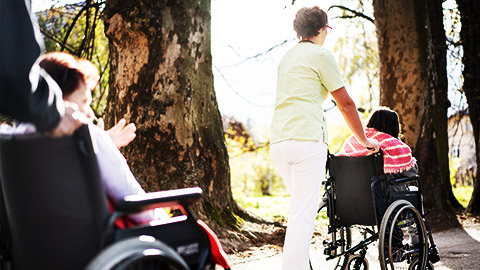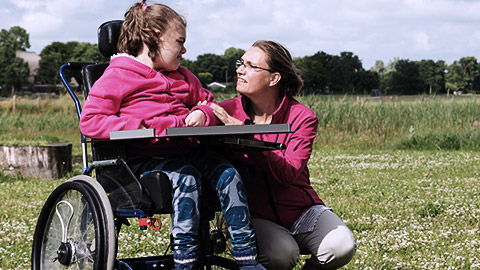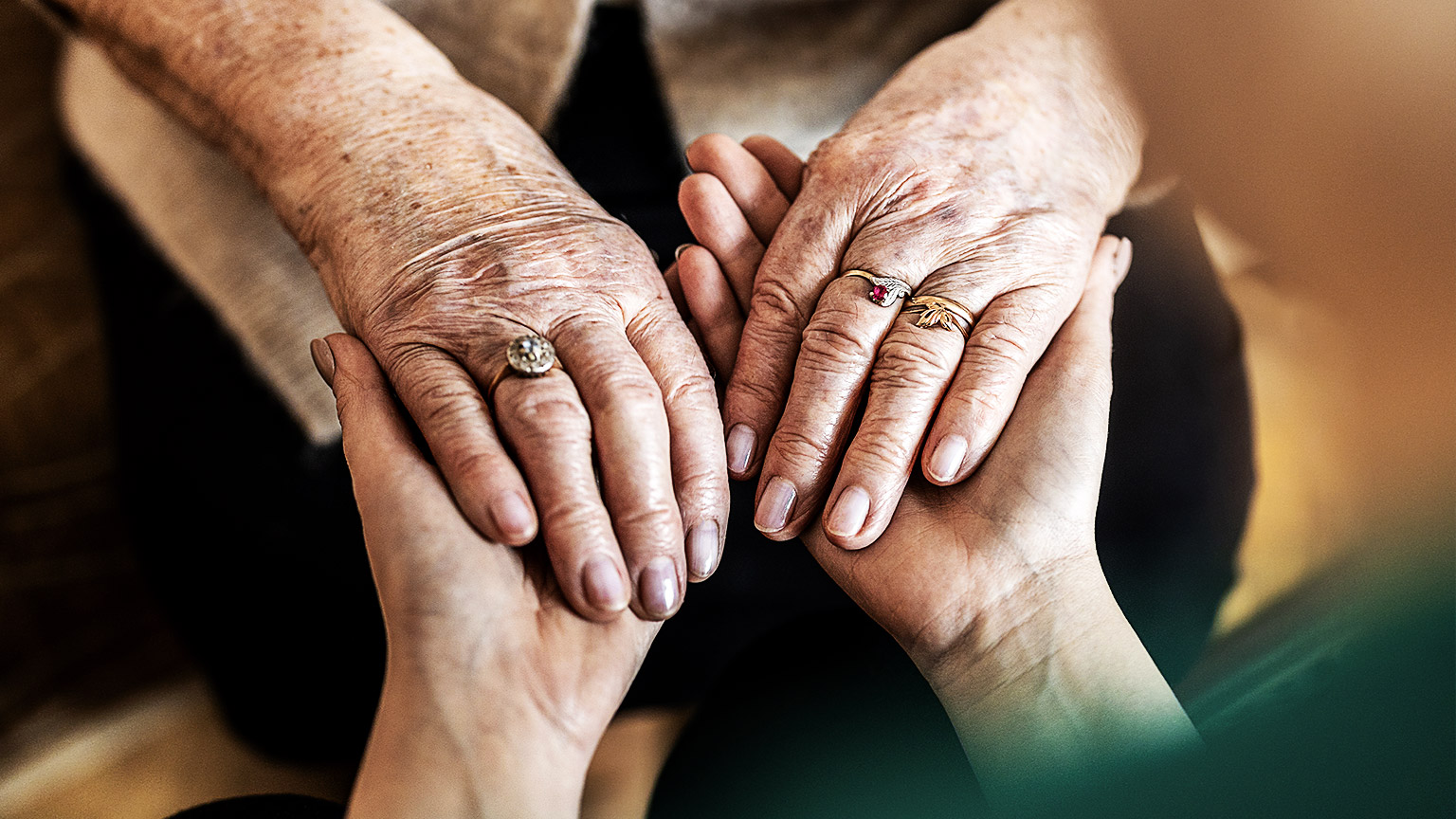Your modules for study have been carefully selected to provide you with a solid foundation from which to move forward.
| Introduction to Individual Support (Ageing) | |
| Module 1 | Communicate and work in health or community services |
| Module 2 | Work legally and ethically |
| Module 3 | Work with diverse people |
| Module 4 | Recognise healthy body systems |
| Module 5 | Safe work practices and infection control |
| Module 6 | SWLA 1 |
| Module 7 | Support relationships with carer and family |
| Module 8 | Support independence and wellbeing |
| Module 9 | Provide individualised support |
| Module 10 | Facilitate the empowerment of older people receiving support |
| Module 11 | Provide loss and grief support |
| Module 12 | Contribute to ongoing skills development using a strength based approach |
| Module 13 | Provide support to people living with dementia |
| Module 14 | Work effectively in aged care |
| Module 15 | Deliver care services using a palliative approach |
| Module 16 | SWLA 2 |

In this module you will explore the principles of effective communication including the models, modes and types within the context of community services. This module is about recognising the influences on communication, how to utilise different communication techniques, and the importance of considering how you communicate where constraints are present. Within this industry there is a need to consider non-verbal communication as a primary source of information, and as such you will examine person-centred service principles, communicating with their needs in mind. This module also asks you to recognise adverse events, conflicts, reporting and documentation requirements. Lastly as part of this module you will be asked to promote and exhibit a positive improvement mindset, seeking feedback and consulting internally to improve practices, procedures and skills.
This module asks you to become familiar with the legislations that cover the topics of discrimination, dignity of risk, duty of care, mandatory reporting, confidentiality to name a few. You will also start looking at the Universal declaration of human rights and the interrelation between human rights and human needs. This module will also explore a critical aspect of any care role which is the professional boundaries when dealing with vulnerable people. This includes conflict of interest, legal situations and the policy frameworks in place for this industry. Within the context of any carer roles there are always circumstances that arise where your heart and the law are in conflict, and this module will prepare you for these situations by giving you the knowledge of how to work within the legislation and maintain both yours and your client’s safety.

This module looks at cultural competence and how you as an individual appreciate, respect and contribute to an inclusive workplace. You will be asked to reflect on your own perspectives and bias around cultural, political, economic, social and generational differences, as well as how you as a care worker can promote a structure of positive response to a diverse environment. In this module you will also be asked to consider marginalised groups, and how the legislation as well as human rights are instrumental in the care you provide people from diverse cultures.
This module is both informative and fun!! This module asks you to explore the basic human body’s anatomy and physiology, delving into the body systems and their included organs. Once you have a good understanding of how every part of your body interrelates, you will then start looking at processes, conditions and resources the human body needs to support healthy functioning.

This is a theory-based module that examines the way in which care workers can practice safe working habits. This is an industry that is at high risk to injuries, for both clients and workers, so it is important to refresh your knowledge and skills around how to undertake manual handling, infection control and hazard identification appropriately. With the help of this module’s activities, you will walk away with the knowledge of WHS legislation, symbols and terminology for safe practices in this industry, possible hazards including that of the client themselves and how to manage these, and the significance of workplace policies and procedures.
To further enhance your WHS knowledge, this module also focuses on additional infection precautions. Given both the world we currently live in and the vulnerability of the people you are caring for, it is vital that you are aware of the protocols associated with infectious diseases and how to manage them in your environment. Particularly considering processes associated with the management of contaminated waste, personal protective equipment, cleaning and sanitising, chains of infection, the basis of infections as well as the methods of transmission, in order to keep both yourself, your colleagues and your clients safe and well.
This module allows you to complete and save documents that relate to your Skills Work Learning Assessment (SWLA).

In this module you will undertake a very practical learning experience to give you the skills on how to work positively with a person's carer and family members. This module requires that you recognise and respond to the support needs of at least three (3) different individuals using the service while also offering assistance to the carer or family of a person undergoing care arrangement changes, including identifying risks and implementing strategies to address them.
You will explore terminology such as person-centred, strengths-based and self-care capacity. This module requires that you can read, understand and interpret individualised care plans, recognise and support a client’s own identity and preference and learn how to avoid imposing your own values and attitudes as a result. It is vital that our clients feel independent as well as supported, as there is a clear link between wellbeing and feeling constricted or restricted. You will explore the effect of abuse and neglect of human development and be asked to reflect on your understanding of good health. Here is a video to help explain this in a snapshot and get you excited:
Care Act films by Iconic Productions - www.iconictv.co.uk
This module takes several of the other modules’ concepts and topics, asking you to determine support needs, provide support services, monitor support activities and report and document client care. This module asks you to look at service delivery models, consider the ethical and legal requirements, and factors that affect people requiring support. It is also an important module for communication and recognising where and how to access support where activities or situations are out of your scope of knowledge. There is a video below to assist you in understanding what individualised support entails.
This module asks you to consider how to build relationships with your clients that promote empowerment and develop trust and goodwill. It is a very vulnerable thing to rely on another person for your care, so you as a carer are being asked to recognise the importance of respectful relationships in providing services to your clients. In this module you will look at re-enablement and be asked to define disempowerment in the context of care. You will also explore stereotypes, attitudes and myths that have a direct effect on your clients’ well-being and cause their disempowerment. There will be topics such as the psychological and physiological changes in ageing, abuse and neglect, confidentiality and disclosure. You will also look at the structure and profile of the aged care sector as a whole.

This module will allow you to recognise and respond to the needs of people who are experiencing loss, grief and bereavement. This module requires that you demonstrate effective responses to a minimum of three (3) diverse situations involving loss, grief, bereavement, or trauma. Additionally, they engaged in skillful communication by utilizing empathic listening, both verbal and non-verbal techniques, offering clear and sensitive information, and actively seeking feedback to ensure understanding.
This module will help you understand the requirements to assist with supporting the ongoing skill development of a person with disability. It involves following and contributing to an established individualised plan and using a positive, strengths-based approach. This module requires you to focus on a strengths-based approach, assisting three (3) people with disabilities in accordance with their individualised plans, with two in simulation and one in a workplace setting.

This module will help you to strengthen your skills to provide person-centered care and support to people living with dementia by following established individualised plans. This module requires that you work with two (2) different individuals living with dementia, employing a person-centered approach that prioritises the rights and dignity of each person. You will also learn to tailor communication strategies to the individual's needs and facilitate activities that meet their specific requirements while implementing strategies to minimise adverse outcomes associated with changed behavior and ensure observations are documented to ensure proper record-keeping and continuity of care.

This module allows you to learn to work effectively in an aged care work context. The unit covers meeting job requirements, complying with organisational requirements and working in an aged care sector context. You will complete tasks such as proving care to at least one (1) person, involving person-centered communication, identifying tasks from their individualised plan, recognising the scope of your job role and making referrals when necessary.
You will also comply with professional conduct requirements, report signs of abuse, seek consent for care activities, collaborate with an inter-disciplinary team, use technology to engage with people and organisations, complete workplace reports and checklists, and ensure the proper maintenance and storage of workplace information while meeting privacy and confidentiality requirements.

This module allows you to learn to provide care for people with life-limiting illness and those within the normal ageing process using a palliative approach, as well as end-of-life care.
You will provide support and document the issues and needs of three (3) individuals receiving palliative care. This includes addressing their care preferences and needs, being responsive to any changes in their condition, and offering emotional support to them, their family, or carer when necessary.
Additionally, you must complete all documentation accurately and promptly, following organisational policies and procedures.
At least one of the individuals you support must be receiving end-of-life care. Furthermore, you are expected to reflect on your emotional responses to death and dying and have a discussion with your supervisor about it at least once.
This module allows you to complete and save documents that relate to your Skills Work Learning Assessment (SWLA).

